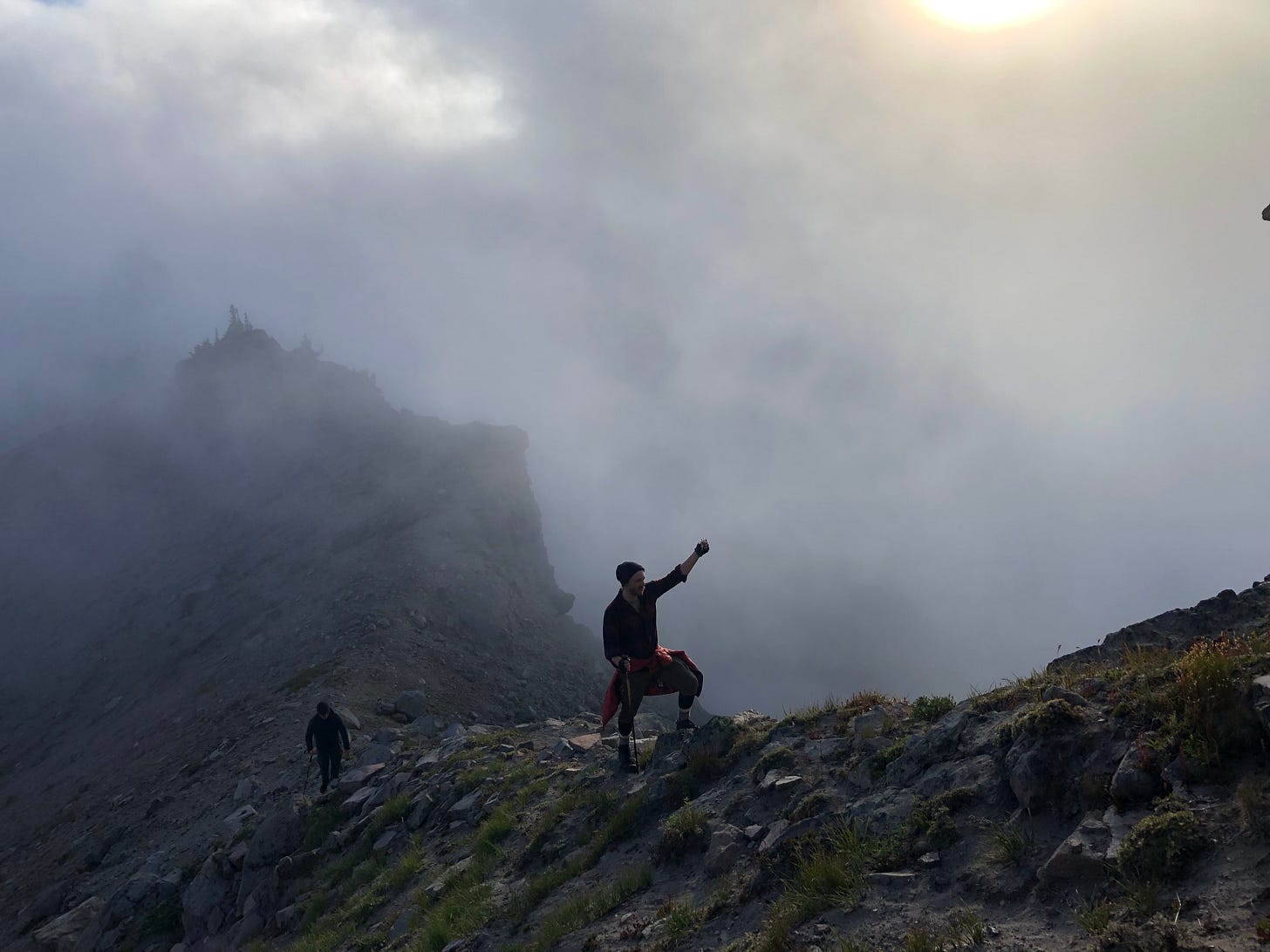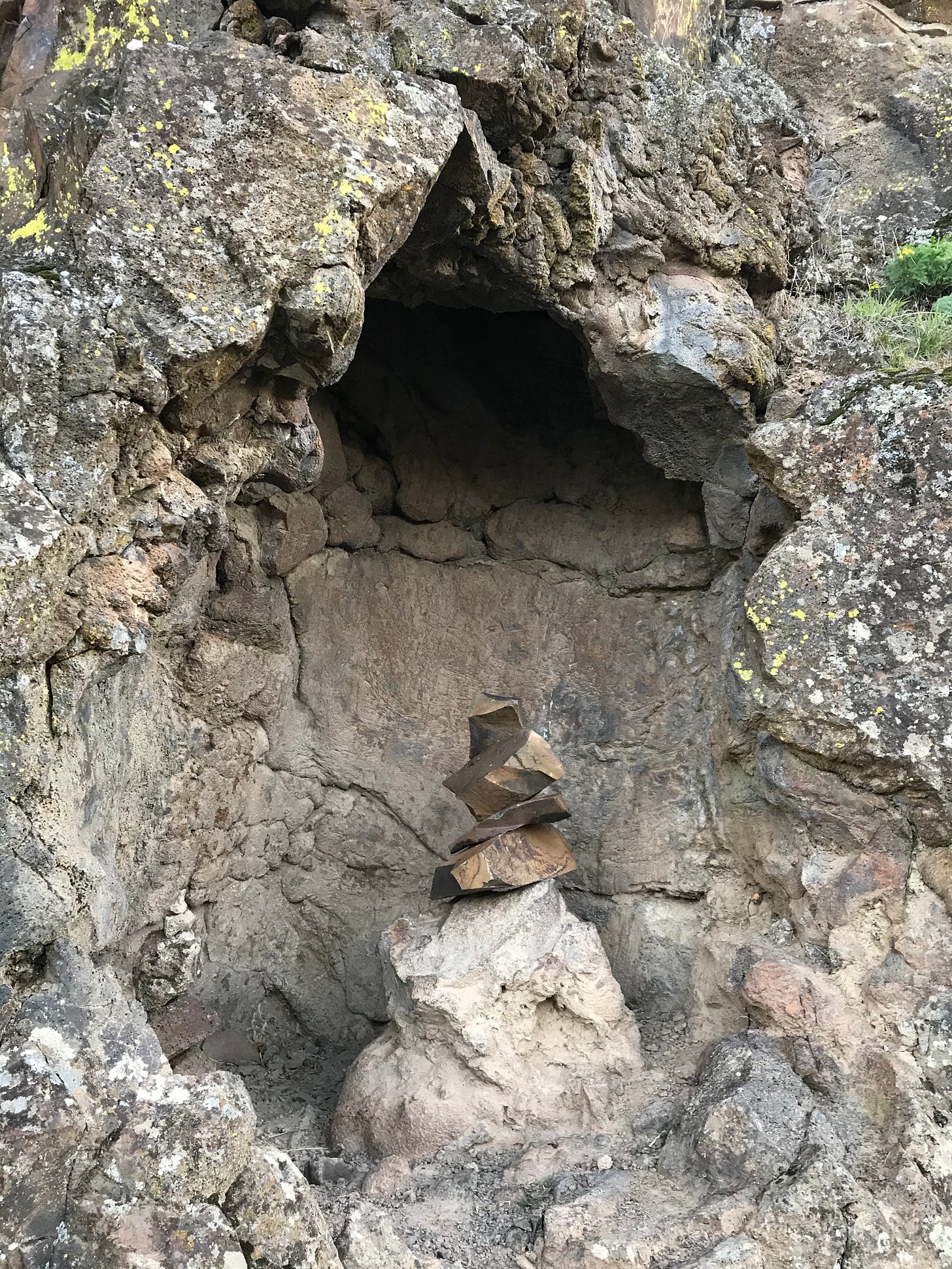Dear friends,
Here is a short fresh poem for your week, with commentary below for my (very kind) paid subscribers. Above is also a recording of me reading the poem, should you wish to hear it.
-Paul
Talus
And all our time is coming down to this,
Where moss extends its hidden root to find
In freeze, in thaw, the widening of cracks;
Some purchase for the holding of a life,
As in the jagged fields the pikas cheep
Among the mazes of the fallen stone
Ancient with our wedged geometry,
And heavy as our memories of home.
No one says what breaks us in the end,
But break we will, in sharpened basalt angles
And all our time is coming down to this:
As our hearts shed their rock, we comfort angels.
One of the delights of English is the abundance of specialty words that arise in certain pursuits. “And áll trádes, their gear and tackle and trim,” Hopkins wrote (in “Pied Beauty”), and there is is a word for every bit of all of them, for each shade of the weather, each unique twitch of a skateboard. Mountaineering and wilderness hiking, which I love, has many: scree and moraine, esker and hoodoo, groppel and couloir, cairn and tarn. The joys are endless; such words seem made of the original tongue. Each somehow holds its meaning in its very sounds.
This short poem takes its central image from one of my favorites among those words of the mountains: talus. Its etymology is a bit shady, but it likely owes its name to the Latin for “ankle.” Talus is the word you use for rock, usually angular, that has broken off a cliff face. (Enough talus forms the aforementioned scree, depending on who you ask, though talus can be quite large boulders, and scree is smaller, or at least feels like it should be smaller, and is generally loose, while talus is less treacherous. Anyway...)
In my dear home of Oregon, the landscape is, nearly without exception, volcanic basalt. Under processes of erosion, and especially the brutal freeze/thaw cycles in my area of the Columbia River Gorge, every weakness of the rock is tested, constantly, by the weathering action of water. The results are incredible: rock spires and tower, cliff faces of columnar basalt, whose octagonal pillars look as though they have been cast in black iron, and vast fields of talus, which over the course of the geologic age has collected slowly and evenly, telling the stories of countless seasons flowing quietly over the stone.
This image of the erosion of sharp rock speaks to me of certain processes of the heart. The ancient prophet Ezekiel, in the ecstasy of the divine word, wrote, in the voice of God,
A new heart also will I give you, and a new spirit will I put within you: and I will take away the stony heart out of your flesh, and I will give you an heart of flesh1.
The stone heart—it is a frightening thought. The heart is the seat of life. It is the engine of the body, the warm drum that stands for our emotion and desire, for what makes us human. For our love. To have a heart of stone—particularly encased still in living flesh as the prophet seems to see—is terrifying. To have that heart replaced with one that lives is a great hope.
It is far above my pay grade to say whether such a salvific replacement would happen all at once, or on a more delayed schedule. Surely the former is possible, but the latter seems more likely, at least to me. To experience new life might be a slow process. Growing is slow, after all, even if birth is quick.
We have discomfort with such processes. We are a people of drills and dynamite. But no natural process, however good, may be scheduled. Life obeys the seasons, but it does not abide by calendars. The revelation of a living heart is not, in general at least, the work of high explosives.
What if the loss of my heart’s stone was something like the process above the scree field? Small points of entry, which the weathering of life might enter and expand, suddenly widen into dark shadows, growing with the years, until some rocky part of the cliff clacks down to join the pile at my feet.
What if the talus gathering around us, those sharp and heavy things which have slowly fallen away, told our stories? What if those stony qualities, incapable of love, were becoming evidence and tesimony of a heart slowly coming to life?
Ezekiel 36:26, KJV






That was beautiful, Paul, and as lovely to listen to (lovelier? I guess it's not a competition) as to read. Thank you.